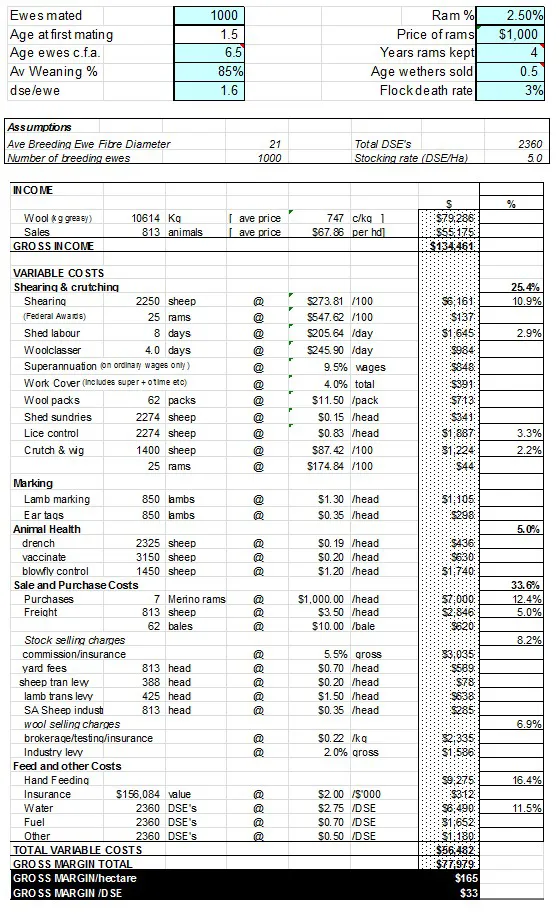For those farm businesses that rely mostly on mains water supply for their livestock, the rising cost of water is becoming a concern. Some key questions needed to be answered.
Once these questions are answered you can then work out how much water your sheep enterprise is using? Available data on water consumption figures vary greatly. Water consumption figures from research at Minnipa showed that, on average, large frame, breeding, Merino ewes drink about 600 litres of water a year. At a water cost of $3.45/kL, that is a cost of approximately $2.75/head.
However actual water use will vary between properties with a number of factors impacting on this including:
A 30% increase in the cost of water reduces the Gross Margin by $4/hectare (in this example).
Work the figures out for your own property. A figure of above 10% of operating costs is significant. Are there alternative water supply options available? Some producers are looking at sheeted catchments, capturing water from shed roofs into underground or above ground tank storage, and shandying mains with poorer quality ground water.
Whilst mains water may be expensive remember to do a full costing before implementing alternative options.
If no alternative sources exist, ensure your infrastructure is sound and efficient, so that water is not being wasted.
